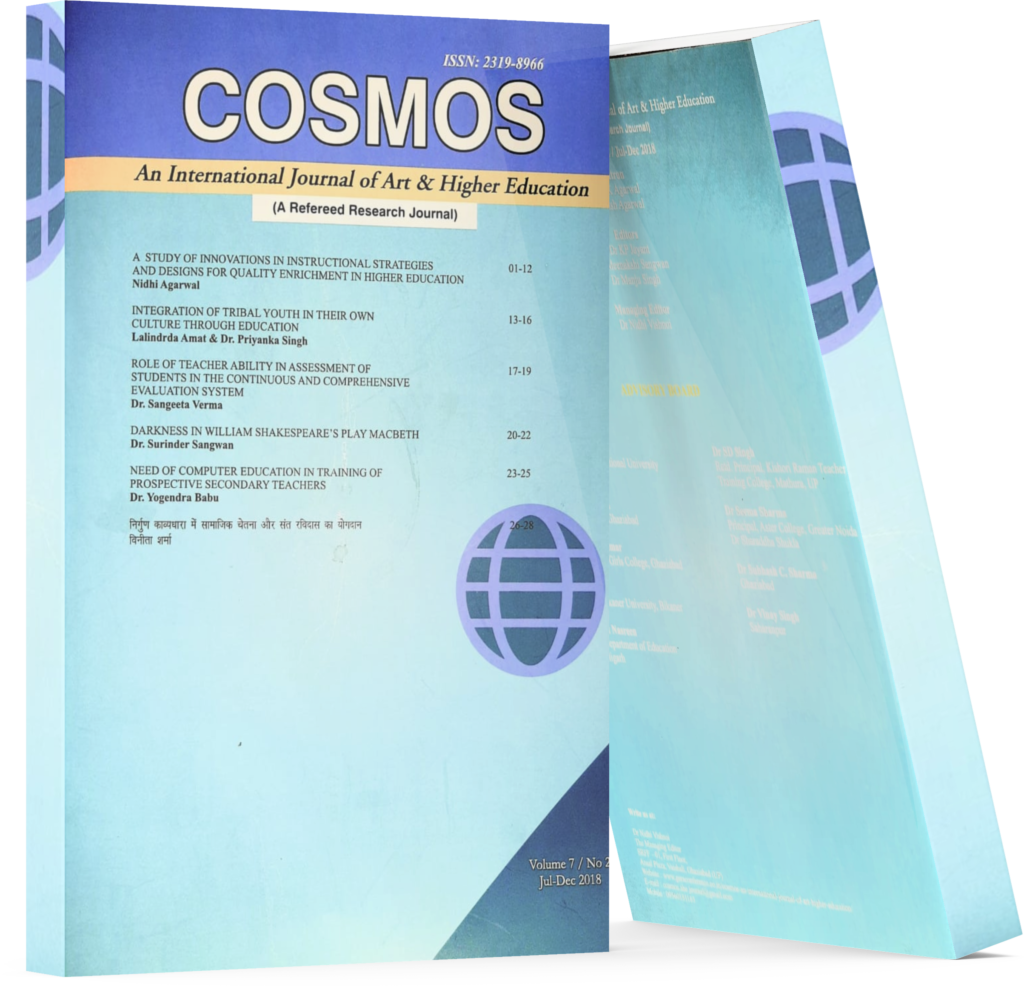Exploration In Linear Algebra: A Viewpoint
Keywords:
Linear Algebra, Architecture, Maths, ModernAbstract
The emphasis in linear algebra was changed to a matrix-oriented course focusing on applications and cutting down on the amount of time spent on idea abstraction as a result of the LACSG's recommendations. Although this change in emphasis benefits maths majors as well as non-majors, abstraction is being treated unfairly by being reduced to an 'also ran' when compared to applications. Since linear algebra's theory is so well-structured and extensive while requiring few mathematical prerequisites, it was chosen to be the first serious mathematics course in the undergraduate mathematics curriculum, according to Alan Tucker (1993) (p. 3). Even undergraduate mathematics majors who excelled in calculus I and II face difficulties in linear algebra. Since it is the first subject in which students are expected to prove theorems, it is crucial to their development as conjecturers and writers of cogent proofs. According to Tucker, "a practitioner or researcher in most areas of pure and applied mathematics needs to have a solid understanding of finite vector spaces, linear transformations, and their extensions to function spaces". Determinants-more especially, the formulation and validation of the determinant's fundamental properties-are one area that is being underemphasized.
Downloads
References
Sharma, Avani (2014). Social Processes and Proofs of Theorems and Programs. Communications of the ACM, 22(13), 271- 280.
Thakur, Avdesh (2014). The Statistics of Discrete Event Simulation. Simulation, 10(6), 185-195.
Gass, S.I. (2014). Evaluation of Complex Models. Computers and Operations Research, 4(7), 27-35.
Kumari, Anita (2015). A Procedure for the Evaluation of Complex Models. Proceedings First International Conference in Mathematical Models, University of Missouri, Rolla.
Tripathi, Bhavendra (2015). Decision Aiding Models-Validation, Assessment and Related Issues. Operations Research, 31(3), 603-631.
Joeeal, L.S. (2015). Concepts of Model Confidence. Computers and Operations Research, 8(1), 341-346.
Gemignani, M. (2015). What is a Computer Program? American Mathematical Monthly, 8(8), 185-188.
Richels, R. (2015). Assessing Energy Policy Models: Current State and Future Directions. Annual Review of Energy, 4(5), 434-554.

